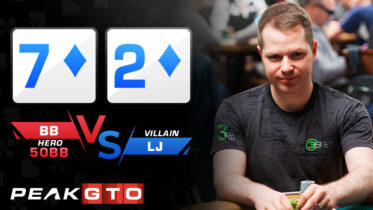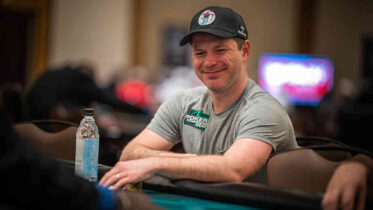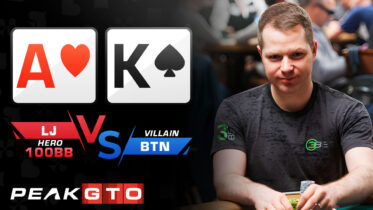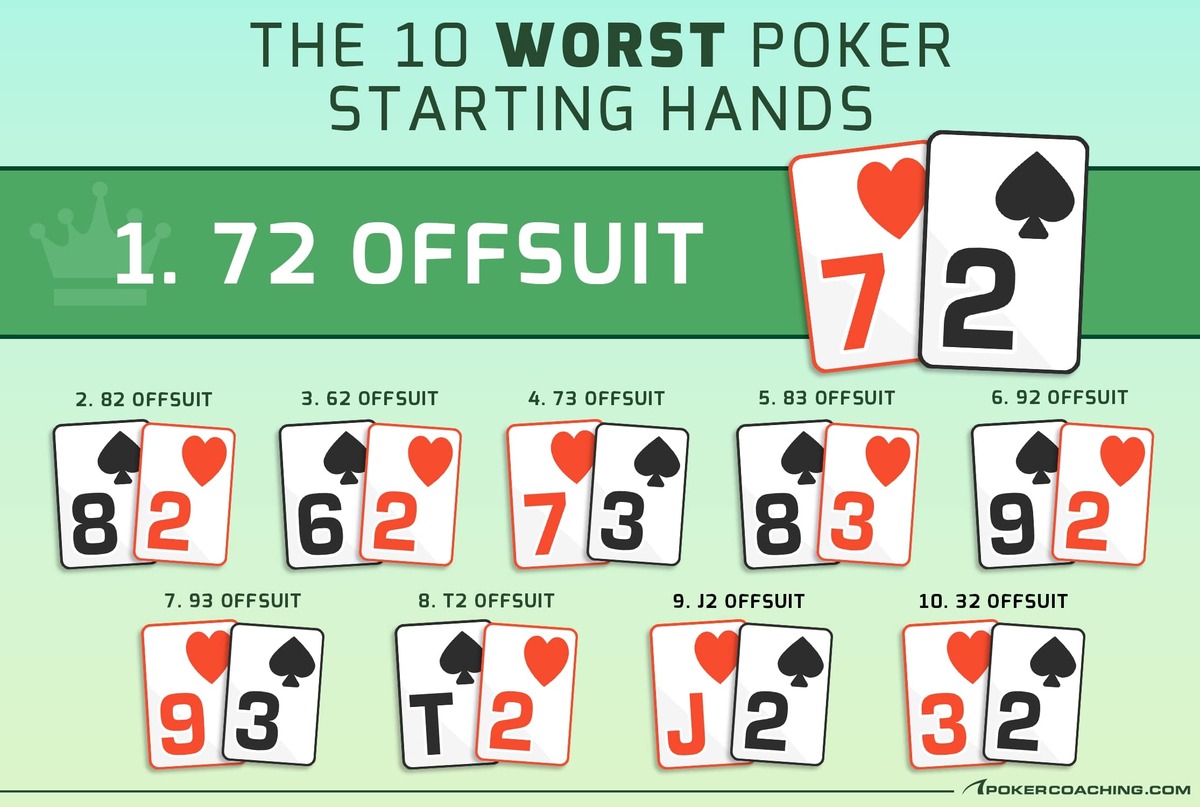Cheating in poker has been a problem since the earliest days of the game. However, Texas Hold’em online poker gave birth to completely new forms of cheating, such as extreme collusion, real-time assistance, and ghosting.
All of these are serious issues in modern online poker, but ghosting is often very hard to detect and battle.
Used by dishonest players across the stakes, ghosting has become a serious issue in online tournament poker in recent years.
Even at the very highest stakes, groups of players using ghosting to their advantage have been detected, demonstrating the significance of the problem.
But what exactly is ghosting in poker, and how do you detect players ghosting other players? That’s the question this article will answer and help you do for yourself in the future.
What Is Ghosting in Poker?
Ghosting is a form of cheating that only exists in online poker. Compared to other forms of cheating, it is often more devious and much harder to detect.
The term ghosting refers to a situation in which one player (usually a less experienced one) plays the early stages of online poker tournaments while a better player takes over in the late stages.
By having the more experienced player take over in the important stages, the pair can gain a significant edge over the rest of the field by the better player having a better understanding of poker strategy when the decisions matter most.
The late stages of online poker tournaments introduce new challenges that less experienced players are often not equipped to handle.
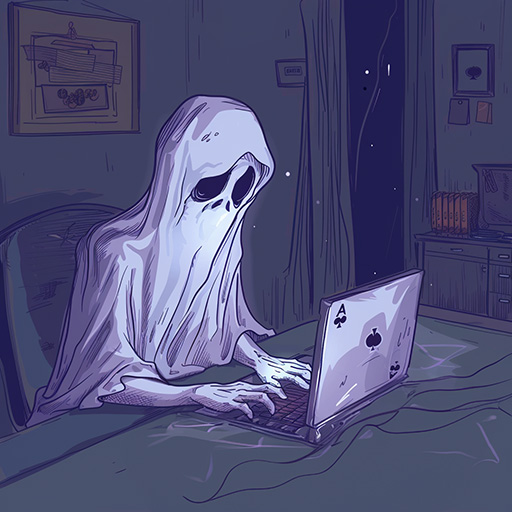
For that reason, players make deals with better players to take over in the late stages, with the two usually sharing the profits in some way.
Even more sinister than single players getting ghosted by their friends or coaches are situations where entire groups of players are getting ghosted by better players.
In the past, entire player groups were discovered that used ghosting to gain an edge. Novice players would play early stages of hundreds of tournaments, giving up their seats to the better players in all the late stages.
In this way, the best players could put all their effort and skill into playing the final tables, thus maximizing their value and winning the maximum profit.
It goes without saying that ghosting in poker is dishonest and a form of cheating, although many in the poker community still engage in ghosting.
If you were thinking about using ghosting yourself, we will explain why it is not a good idea. Furthermore, we will look into ways players and operators can detect ghosting and what can be done to battle it.
Why You Should Avoid Ghosting
When you think about it, ghosting in poker might sound like a great idea. It gives you a chance to only ever play the early stages of tournaments, stack up on the bad players, and give someone else the task of playing the difficult parts.
However, there are multiple reasons why ghosting in poker is a terrible idea and why you should avoid it at all costs.
For starters, poker ghosting is banned at all major poker platforms. If you engage in ghosting and are detected, you will get banned.
A ban from a major poker site will make it impossible for you to play there in the future and will cost you any balance you have with the operator.
What’s even more, poker sites are starting to work together against cheaters, and it’s only a matter of time before getting banned from one site for ghosting will get you banned from others as well.

In the long run, this could mean that once you get caught ghosting, you will never be able to play online poker again without cheating even further.
Even if ghosting were not grounds for a ban, it would still not be the best way for you to play poker, as it stops your progress in its tracks.
As a poker player, you should always be looking to improve your skills, especially when the ICM is highest. If you give your seat to someone else every time you run deep, you never get that chance.
Without ever playing the final table of an online tournament, you will never become an elite poker player yourself.
While you may get some extra profit by doing this in the short term, you won’t always be able to have someone take over, especially if you play in live tournaments in the future.
Overall, poker ghosting is terrible for your progress as a poker player, it is unethical and against the rules, and is a practice that will make you hated by the entire poker community if you engage in it often enough.
Detecting and Dealing with Ghosting in Poker
It is now clear that poker ghosting represents a form of cheating and is forbidden at major online poker platforms. But how do they detect and deal with ghosting?
The truth is that finding players who engage in ghosting is a lot more difficult than detecting some other forms of cheating like RTA or botting.
The reason, of course, is that nothing really changes when a ghost takes over other than the player’s game going to the next level.
However, players are fully allowed to play their hands in different ways in different stages of the tournament, making it next to impossible to say for sure if someone is taking over for someone.
Yet, the skill difference between players who play early and late stages in many cases can be dramatic, to a point where it becomes noticeable to other players at the table.
If you find yourself in a situation where a player becomes far more GTO poker in their style and significantly tougher to play all of a sudden, you should probably report it to the operator.

While it won’t always be possible to prove ghosting, there is a chance the player is actually being ghosted and that the operator detects it.
In most cases, operators will only act against players who engage in ghosting when they are reported, so make sure to report anyone you suspect of doing it.
It is worth noting that you must be mindful of any reporting and only do it when you are pretty sure there is something shady going on.
Once detected, players who were engaged in ghosting will get banned, their funds usually seized, and they won’t be able to play on their accounts anymore.
However, even this does not solve the problem altogether, making poker ghosting a deeper problem that must be dealt with more seriously in the future.
Multi-Accounting and Other Cheating in Online Poker
Ghosting is a serious form of cheating, and players who do it often get banned from poker platforms. However, this does not always stop them from cheating further.
After all, the player just needs a new account to play on when they get banned, and anyone who allows others to play on their account is usually comfortable playing on someone else’s account as well.
What this leads to is players who get banned often creating new accounts in the names of their friends or family members and going right back to cheating.
In fact, many strong poker players were also caught multi-accounting and playing on brand new accounts to hide their true identity and get more action.
Other forms of cheating in online poker, such as the use of Real-Time Assistance tools, have also become a big problem, and there are also cases where multi-accounting, ghosting, and RTA go hand in hand.
The truth is that online poker has become quite a playground for cheaters, and while 99% of players are not trying to cheat, there are always individuals out there looking to get an unfair edge.
The next time you play online poker, especially in tournaments, be mindful of all these things and try to recognize any individuals who may be cheating in any of these ways.
If you notice a player doing something shady, get some evidence and report them. All serious poker operators will make sure to run an inspection and act accordingly if the player is actually a cheater.


